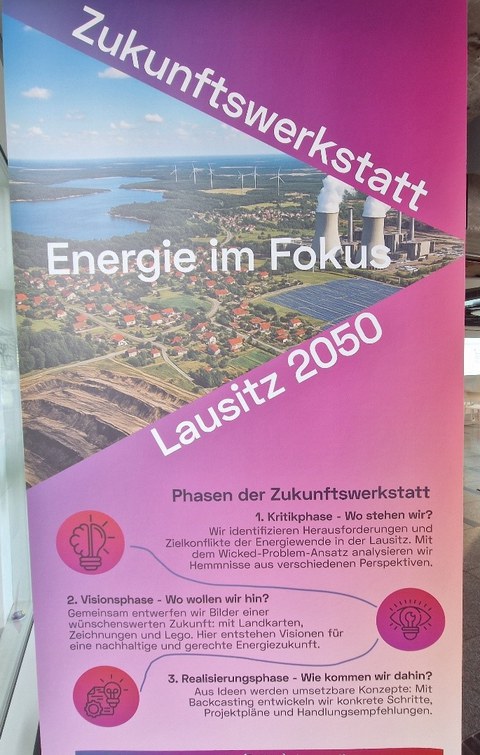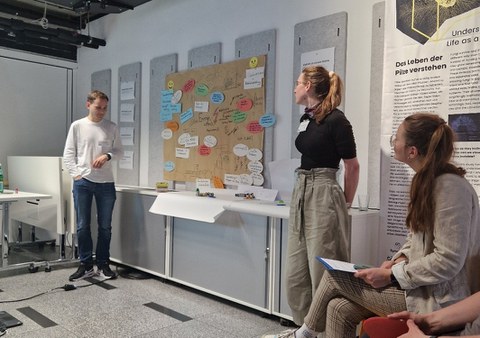Jun 13, 2025
RTG at the Lusatia 2050 Future Workshop
On Monday, 02.06.25, the Boysen-TU Dresden-Research Training Group doctoral students Marie Walstab (Project F2, picture above right), Jannik Amon (Project G3, picture above left) and Christian Gutsche (Project F4) took part in the "Zukunftswerkstatt Lausitz 2050 - Energie im Fokus" ("Lusatia 2050 Future Workshop - Focus on Energy"), which was organized by the CIMTT (Center of Production Engineering and Management, Faculty of Mechanical Science and Engineering at TU Dresden). A future workshop is a discussion format in which creative solutions for social problems are to be developed. In particular, the aim is to enable the participation of various interest groups and thus develop ideas in a joint exchange. In this specific case, the aim is to develop positive future scenarios for the energy transition in the Lusatian lignite mining region.

Poster for the Lusatia 2050 Future Workshop - Focus on Energy
In the Lusatian lignite mining region in north-eastern Saxony and south-eastern Brandenburg, lignite has been extracted from open-cast mines and used to generate electricity for more than 100 years. In recent decades, the many disused open-cast mines have been transformed into a lake landscape. Today, there are still three active open-cast mines and three coal-fired power plants. However, as part of the German government's decision to phase out coal by 2038, these remaining plants are also to be decommissioned. The loss of power plant reserves will have an impact on the electricity and energy system. In addition, the energy industry is an important employer in the region, meaning that social consequences must be cushioned.
These aspects were to be discussed as part of the future workshop. Sustainable alternatives for energy supply, e.g. with hydrogen as an energy source, were considered. Scientific projects such as RefLau (RTG reported) were part of the discussion, which was presented by Dr. Simon Unz, Chair of Energy Process Engineering and supervisor of the F1 project.
As part of the first of two dates of the future workshop, conflicts in the context of the energy transition were considered and possible solutions developed. Discussions were held in smaller groups and ideas were visualized using creative means. In the first step, the solutions were deliberately intended to represent scenarios that were as positive or utopian as possible. At the second meeting in October, these visions will then be further developed into realistic future scenarios from the participants' point of view in order to derive recommendations for political action.
The doctoral students would like to thank the organizers for the successful event!

